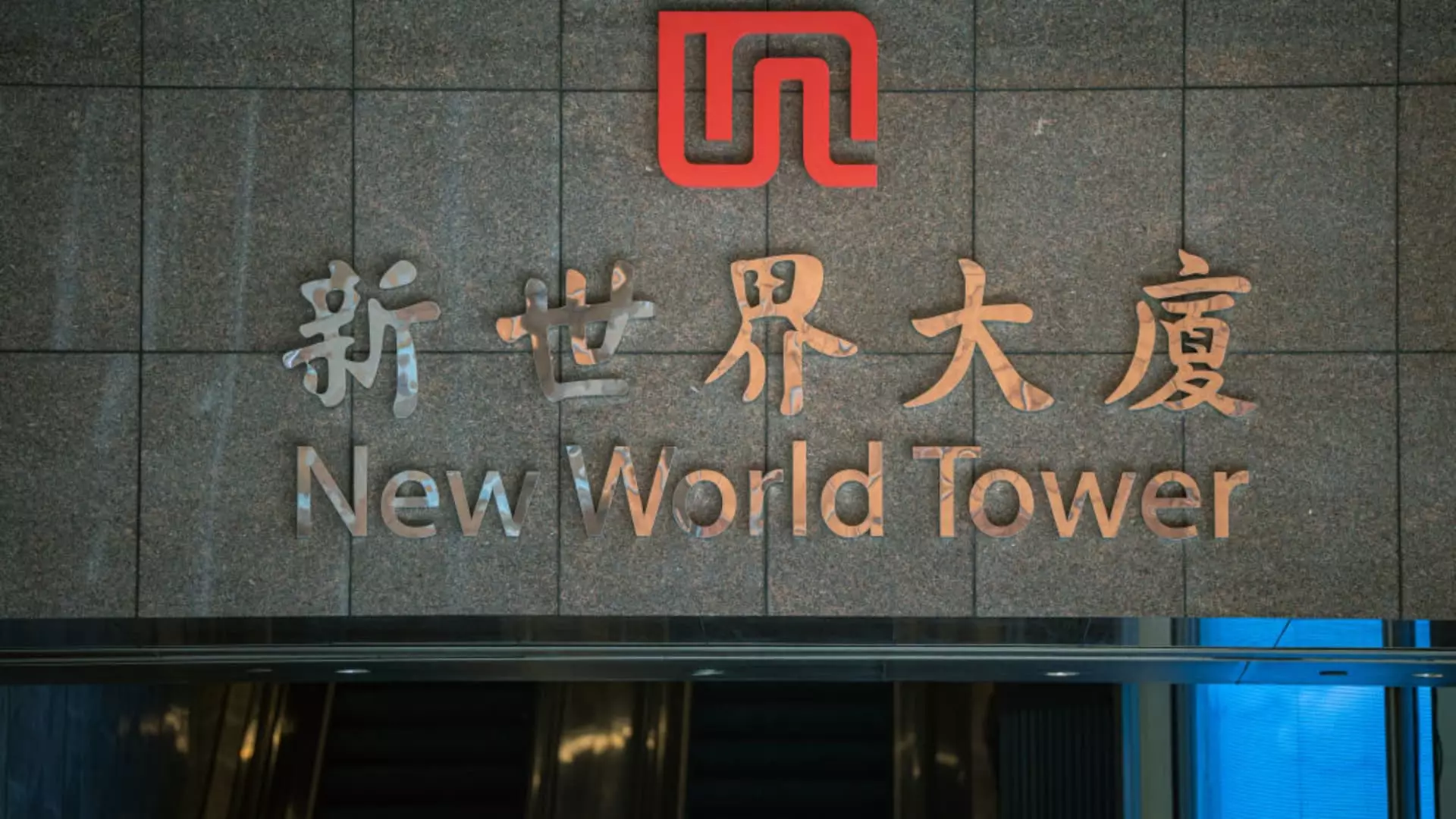The sudden resignation of Adrian Cheng, a prominent figure in Hong Kong’s New World Development and a scion of the founding family, has sent shockwaves through the financial markets. Following this unexpected announcement, shares of the development company surged by an impressive 23% when trading resumed. This remarkable change underscores not only the pivotal role of leadership in shaping investor sentiment but also reflects the often volatile nature of corporate governance within family-run enterprises. New World Development’s decision to halt trading just before this surge indicates the company’s strategy to manage market reactions to significant internal changes.
In the wake of Cheng’s departure, the appointment of Chief Operating Officer Eric Ma Siu-Cheung as the new CEO marks a notable pivot for New World Development. Traditionally, prominent family businesses often prefer to designate successors from within the family, but this time an outsider assumes the helm. This decision may signal a newfound emphasis on professional management in a sector long dominated by familial legacy. By opting for Ma, the company could be positioning itself to embrace more contemporary corporate governance practices aimed at navigating the troubled waters of Hong Kong’s real estate market.
While the stock surge might suggest a renewed confidence, it’s crucial to consider the broader context of New World Development’s financial situation. The company recently projected a staggering loss—and when juxtaposed with the ongoing struggles in the real estate sector, the challenges ahead are daunting. With expected losses between HK $19 billion and HK $20 billion, exacerbated by declining sales and investment setbacks, the company’s future prospects remain uncertain. The cloud of substantial debt further compounds this predicament, revealing underlying systemic issues within the business that mere changes in leadership may not remedy.
Economists have underlined the pivotal importance of robust corporate governance, especially in volatile markets. Alicia Garcia-Herrero of Natixis has articulated a growing sentiment that traditional family succession models may not be well-suited for navigating today’s financial landscapes. The representation of familiar faces at the helm often leads to complacency, and in an era where performance and adaptability are paramount, this model is increasingly becoming obsolete. The endorsement of external leadership could signify a wake-up call for similar enterprises: acknowledging that survival necessitates not just legacy but also meritocratic management practices.
Moreover, the recent rally in New World Development’s shares should be viewed in the context of broader economic stimuli issued by the Chinese government. These measures aim to stabilize the real estate market, which has faced persistent decline. The central bank’s proactive stance could help bolster investor confidence across the board, marking a vital attempt to fortify the economy amid ongoing challenges. Nevertheless, while these external factors may drive short-term gains, the long-term health of New World Development will largely hinge on its ability to adapt and thrive in a rapidly evolving market landscape.
The interplay of leadership, market performance, and external economic conditions paints a complex picture for New World Development. As the company navigates this transformation, it faces not only the formidable task of addressing current financial shortfalls but also the larger challenge of re-engineering its governance framework to foster sustainable growth in an unpredictable market.


Leave a Reply